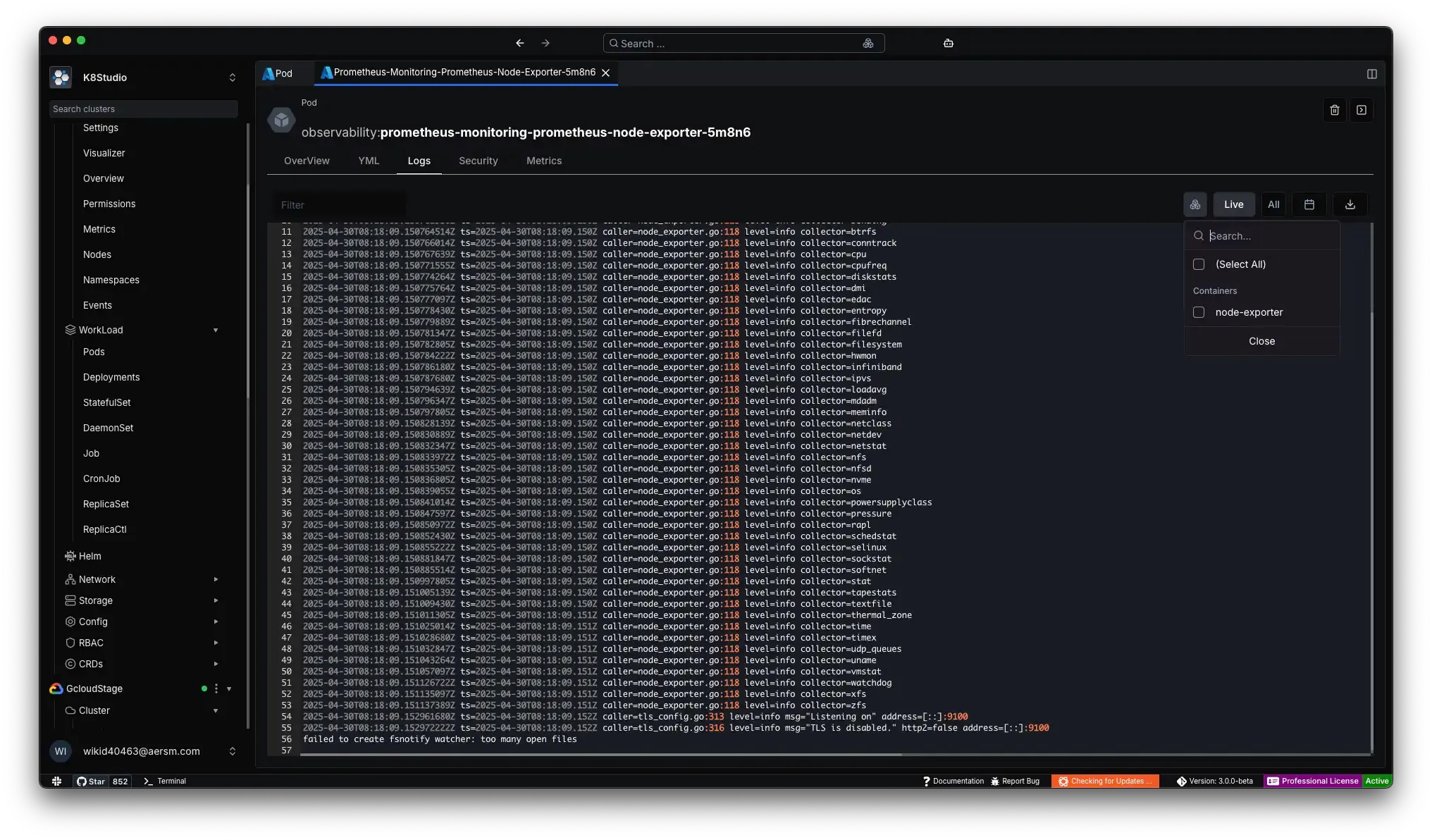How to get the most out of Pod or Workload Logs in Kubernetes
If you're a serious DevOps engineer managing a Kubernetes cluster, you'll quickly realize that mastering logs is essential to your craft. Logs help us understand what's happening inside pods, the components that run containers and host our applications.
1. What we can get out of the logs
Logs provide insights into:
- Application errors and exceptions
- Startup and shutdown sequences
- Resource usage or connectivity issues
- Debugging unexpected behavior or crashes
So we are going to start with kubectl and see how we can get logs from pods and deployment, after we will present some alternatives.
2. Kubectl Basic Commands
If a pod only have one container we can just :
kubectl logs <pod-name>If we have multiple containers we need to choose the container we want the logs for :
kubectl logs <pod-name> -c <container-name>If we want to actively monitor logs we probably want to tail then, here is how is done:
kubectl logs -f <pod-name>Something I didn't know for a while is that even if a pod crashes, we can still retrieve the logs from before the crash. This is really useful since pods are ephemeral
kubectl logs <pod-name> -c <container-name> --previous3. Time-Based Log Filtering
Being able to avoid getting lost in a bunch of logs can be super useful. Here are some commands I use every day.
Show the last 50 lines for example:
kubectl logs --tail=50 <pod-name>Show logs from the past hour:
kubectl logs --since=1h <pod-name>Show logs since a specific date:
kubectl logs --since-time="2024-06-25T12:00:00Z" <pod-name>4. How to make log more readable .
The output from these commands isn't always easy to read, so here are some tips to make logs easier to consume. Trust me - after a full day of work, you'll appreciate this. Include dates in log output:
kubectl logs --timestamps <pod-name>Combine with UNIX tools to only show what is relevant:
kubectl logs <pod-name> | grep "ERROR"kubectl logs <pod-name> | jq '.'kubectl logs <pod-name> | less5. Viewing Logs from Deployments and ReplicaSets
Since deployments manage multiple pods, you'll need to fetch logs from all pods associated with a deployment.
View logs from all pods under a deployment:
kubectl logs -l app=<label> --all-containers=trueAlternatively, list the pods first:
kubectl get pods -l app=<label>kubectl logs <pod-name>Or use a loop:
for pod in $(kubectl get pods -l app=myapp -o name); do
kubectl logs $pod;
doneBut they are way better tools to manage Kubernetes logs.
One tool that I like is stern for colored, live streaming of logs across multiple pods.
stern <pod-name-prefix>This would give you this kind of output:
api-server-5d68df8676-bk9gq app 2025-06-27T10:12:45.123Z Connected to database successfully
api-server-5d68df8676-xvljm app 2025-06-27T10:12:45.456Z Received request: GET /healthz
api-server-5d68df8676-bk9gq app 2025-06-27T10:12:46.001Z Processed job #1234
api-server-5d68df8676-xvljm app 2025-06-27T10:12:46.332Z Returned status 200 for /healthz
api-server-5d68df8676-bk9gq app 2025-06-27T10:12:47.876Z ERROR: Timeout while processing job #1235Some other features of stern:
- Tail logs from multiple pods
- Color-coded output by pod/container
- RegEx matching for pod names
- Automatic updates as pods scale or restart
Another tool is K8studio

With K8studio, you can select a pod and access its logs, or choose a workload to see the combined logs of all the pods managed by a deployment or replicaset. You can also cherry-pick which pods and containers you want to view. Logs are color-coded - typically the pod or container names, as well as the timestamps.
You can tail logs, or filter them by time or range. There's also support for searching and filtering text, and yes - you can download the log file.